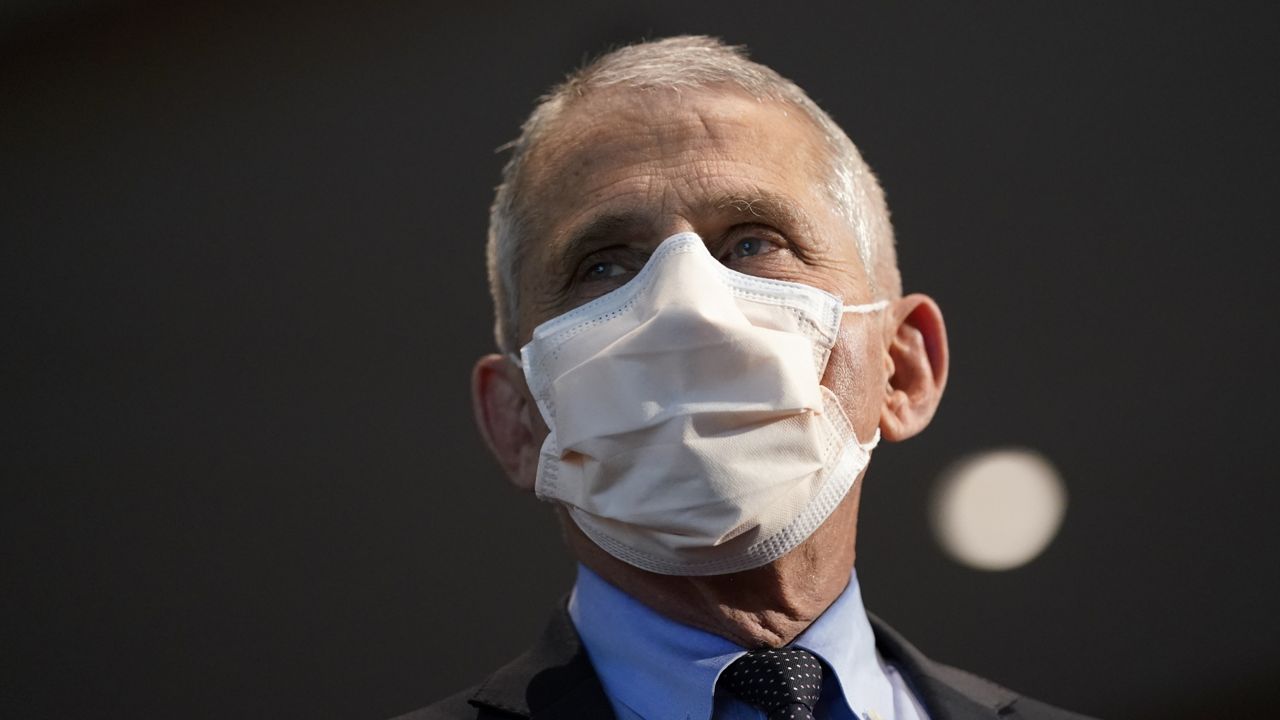The U.S. could soon be giving at least a million COVID-19 vaccinations a day despite the sluggish start, Dr. Anthony Fauci said Tuesday, even as he warned of a dangerous next few weeks as the coronavirus surges.
The slow pace is frustrating health officials and a desperate public alike, with about a third of the first supplies shipped to states over the past few weeks used as of Tuesday morning.
“Anytime you start a big program, there’s always glitches. I think the glitches have been worked out,” the nation’s top infectious disease expert told The Associated Press.
Vaccinations only began on Dec. 14 and already had begun speeding up, reaching roughly half a million injections a day recently, he pointed out. Now with the holidays over, “once you get rolling and get some momentum, I think we can achieve one million a day or even more,” Fauci said. He called President-elect Joe Biden’s goal of 100 million vaccinations in 100 days “a very realistic, important, achievable goal.”
It’s an optimistic prediction considering the logistical hurdles facing states and counties as they struggle to administer rationed vaccine supplies amid rising COVID-19 hospitalizations. Fauci pointed to California’s swamped hospitals “as well as exhausted personnel” even before holiday travel.
The coronavirus has killed more than 356,000 Americans, and the next few weeks could bring another jump in infections nationally that “could make matters even worse,” he said.
The Trump administration had promised to provide states enough vaccine for 20 million people in December, and fell short even as states struggled with their role — getting shots into people’s arms, starting mostly with health care workers and nursing home residents.
According to the Centers for Disease Control and Prevention, roughly 4.8 million doses of more than 17 million delivered had been used by Tuesday morning — likely an undercount due to delays in reporting but still far fewer than experts had hoped.
Still, Fauci pointed to a celebrated moment in history to back up his projection of ramped-up inoculations: In 1947, New York City vaccinated more than 6 million people against a smallpox outbreak in less than a month — and “one of them was me as a 6-year-old boy who got vaccinated.”
If a single city could do such mass vaccinations in weeks, “this is not something that is far-fetched” for an entire country, he said. “You can use school auditoriums, you can use stadiums. You can really ramp up the contribution of pharmacies.”
At that stepped-up pace, the country could see an impact of vaccinations on infections as early as spring — and hopefully by early fall, “you could start thinking about returning to some degree of normality,” Fauci said.
There’s no sign yet that a more contagious variant of the coronavirus first found in Britain — which forced England into another national lockdown on Tuesday — will outwit the vaccines. Fauci’s colleagues at the National Institutes of Health are doing their own testing to be sure, just as vaccine manufacturers are.
While the variant has been found in several states “it is certainly not dominant,” Fauci said. “We don’t know where it’s going. We’re going to follow it very carefully.”
The more contagious virus makes it even more important that people follow the public health precautions Fauci has preached for months, including wearing a mask, keeping your distance and avoiding crowds.
In addition, scientists are warily watching a different variant found in South Africa, but not yet reported in the U.S. There have been some reports that the mutation might make treatments called “monoclonal antibodies” less likely to work. Those antibodies target one specific spot of the coronavirus, unlike vaccines that are designed to recognize multiple pieces of the virus’ spikey coating. Fauci said he couldn’t confirm the therapy concern but said U.S. scientists will investigate.



